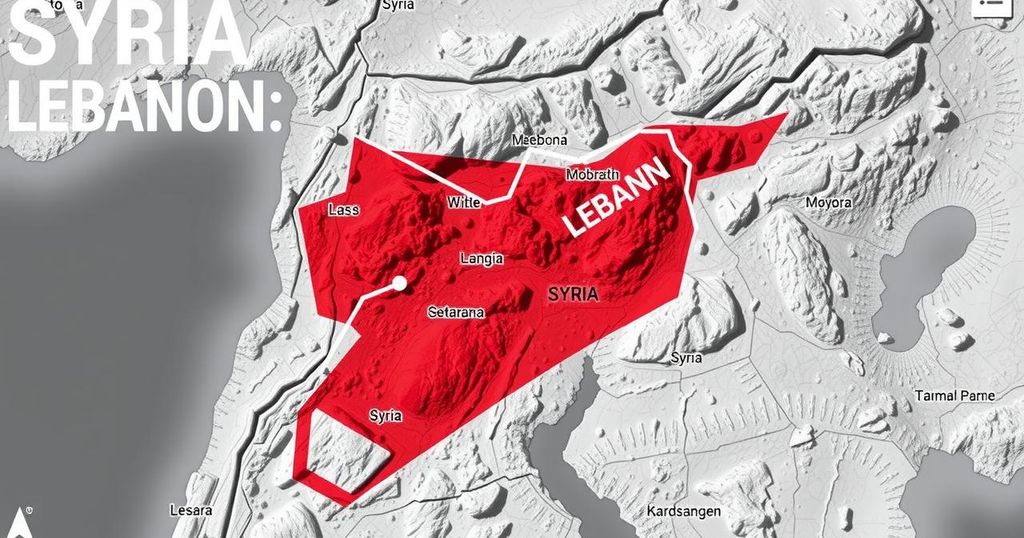The article discusses the political upheaval in Lebanon in the aftermath of the Assad regime’s instability in Syria, particularly focusing on the assertiveness among the Sunni community demanding the release of held prisoners. It highlights the tensions between Sunni factions and Hezbollah, the implications of military discussions involving General Joseph Aoun, and the concerns about upcoming presidential elections amidst ongoing political crises.
The recent earthquake in Syria has fostered a surge of activism among the Sunni community in Lebanon, particularly amidst calls for the release of detained Sunni prisoners. Prominent Sunni figures, including Sheikh Ahmad Shemali, have rallied public sentiment in favor of amnesty for imprisoned Islamists, citing the evolving political landscape in neighboring Syria following the weakening of the Assad regime. This movement, mainly driven by the Jamaah Islamiya, seeks to reinforce Sunni influence in a region historically dominated by Hezbollah, amid increased tensions and disagreements surrounding the Lebanese political framework.
The political crisis in Lebanon is becoming increasingly complex. Hezbollah faces significant challenges stemming from its diminished military stature and lost support due to its involvement in the Syrian conflict. Meanwhile, General Joseph Aoun of the Lebanese Armed Forces seeks a stronger role in national governance, highlighted by his recent discussions with Hezbollah’s Wafiq Safa regarding adherence to ceasefire agreements. As Lebanon approaches a new presidential election, the Shiite community grapples with the implications of these political shifts and the potential candidacy of an anti-Hezbollah figure.
Furthermore, the divisions among the Christian factions seeking to establish a unified front against perceived Hezbollah alliances complicate the situation further. Historical agreements between former President Michel Aoun and Hezbollah have emboldened the latter’s influence and position within the country, straining unity among Christian leaders opposed to such partnerships.
Lastly, there are concerns about the potential for Sunni unrest in Lebanon, given the increased assertiveness of Sunni factions and the specter of historical conflicts with groups such as ISIS. Although current leadership, including Ahmad al Sharaa of Tahrir al Sham, has dismissed any intentions to instigate conflict in Lebanon, the uncertainties surrounding the Syrian political landscape could inadvertently impact Lebanese stability in the forthcoming months.
With many Lebanese politicians expressing apprehension over possible contagion of strife, Lebanon’s engagement with the new Sunni regime in Syria may usher in a period of heightened tension, particularly within Sunni-dominated areas.
The article examines the political dynamics and implications in Lebanon following the collapse of the Assad regime in Syria. The Sunni community in Lebanon is becoming more assertive, responding to the shifting power dynamics as groups such as Jamaah Islamiya advocate for the release of imprisoned Sunni individuals. The complexity of alliances and ongoing disputes within Lebanese society highlights the fragility of its political environment, especially regarding Hezbollah’s diminishing influence and the upcoming presidential elections.
In conclusion, the current political landscape in Lebanon is characterized by an awakening Sunni community eager to capitalize on regional changes, coupled with internal divisions among political factions. Hezbollah’s waning power poses significant challenges, yet the stability of Lebanon remains contingent upon the interplay of local and regional politics. As the situation continues to evolve, political leaders must navigate this precarious context to avert potential unrest and instability.
Original Source: aurora-israel.co.il






